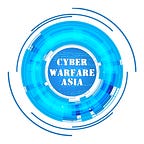Egypt in on the path for comprehensively curtailing cyber warfare
In the recent times, Middle East has become the hub of cyber warfare. In the process many private and state actors have emerged as key players. For instance, Qatar was supported by Turkey, US based Global Risk Advisors (GRA) and Italy’s Hacking Team; UAE was supported by Israeli firm NSO Group, Bulgaria’s Circles and Baltimore’s Cyber Point; Saudi Arabia was supported by Germany’s Gamma International and Israeli NSO Group; Bahrain was supported by Italy’s Hacking Team and Egypt by Chinese interception company Privis Technology.
All most all major countries of Middle East took help from foreign or regional actors to strengthen their cyber capabilities both offensive and defensive. But, few are now working on to overcome the overall cyber warfare challenges like Egypt.
Marian Azir, Head of the Coordinating Committee for Technology and Innovation Strategy at the Financial Regulatory Authority (FRA), Egypt has warned that cyber warfare is stealth. Azir’s remarks came during the Conference on Peace Opportunities on Tuesday, organized by the SHAF Center for Crisis Analysis and Future Studies in the Middle East and Africa.
She explained that cyber warfare has several levels, starting with disrupting services, sabotaging data, collecting information, or all of that. Azir referred to the recent disruption of 30 warehouses in the Saudi Aramco company to disrupt oil supply and distort the image of the state in 2012.
She also said that Egypt and many countries have begun to pay more attention to cyber security legislation to confront any attacks or deliberate sabotage. Moreover, the House of Representatives issued several laws aimed at protecting the state and citizens from cyber-attacks.
By 2009, Egypt already possessed technology that allowed large-scale access to telephone networks. When protestors broke into the headquarters of an Egyptian security agency in March 2011, they famously retrieved and disclosed tenders for targeted surveillance technologies.
After President Abdel Fattah El- Sisi’s rise to power in 2013, the new regime purchased more surveillance technologies; including French/Emirati Company Nexa Technologies, a local affiliate of US Company Blue Coat, and Italian company Hacking Team.
Moreover, the regime also introduced cyber crime law that was signed on 18 August 2018 by President Abdel Fattah El- Sisi that legalizes and reinforces the existing censorship and blocking of websites and criminalizes both those who operate sites and those who use them illegally to curb misinformation and data theft.
The above efforts are taken by Egypt’s new regime in the light of curtailing the emerging cyber threats in the region by associating with various tech partners, introducing relevant cyber policies and cyber law enforcement practices. All these efforts are making Egypt one of the few countries in the region to comprehensively curtail cyber warfare.
